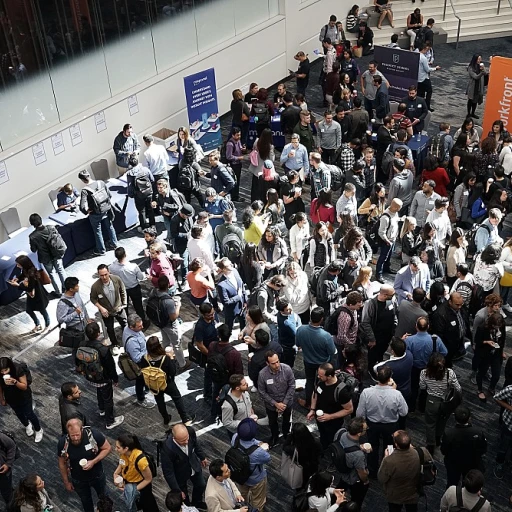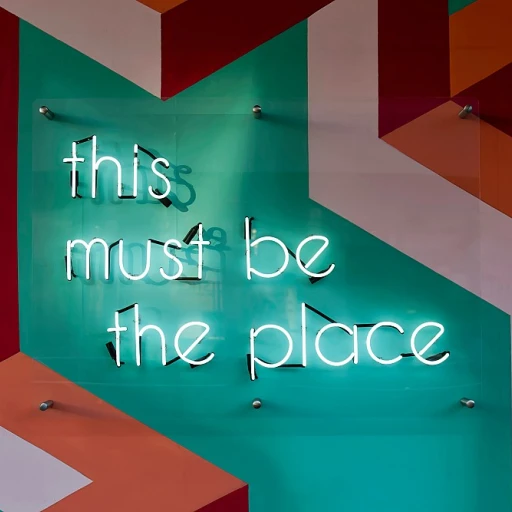
Understanding the Purpose of a Preliminary Interview
The Objective of the Initial Screening
The preliminary interview serves as the first step in evaluating potential candidates for a role. This stage is crucial for employers as it helps identify which applicants have the necessary skills, experience, and cultural fit for the company. The primary aim is to streamline the recruitment process by narrowing down the pool of candidates suitable for the job.
During this phase, hiring managers and HR professionals focus on understanding whether candidates possess the basic qualifications required for the position. This includes reviewing their professional background, key skills, and overall suitability for the job role. By assessing these attributes, employers can effectively predict candidates' potential contributions to the team and their likelihood of thriving within the company's environment.
The preliminary interview is typically brief and can be conducted through various formats, such as phone calls, video interviews, or face-to-face meetings. This allows hiring managers to efficiently identify potential talent without investing much time or resources, ultimately expediting the hiring process.
As you navigate this initial stage, consider the common questions that might be asked and the skills to highlight, as these are critical in making a compelling case for your candidacy. Additionally, understanding what to avoid and how to leverage feedback can further enhance your chances of moving forward in the recruitment process.
Key Skills to Highlight During a Preliminary Interview
Showcasing Your Strengths
In a preliminary interview, it's essential for candidates to bring their key skills to the forefront. This stage in the recruitment process often acts as a pre screening to assess whether your experience aligns with the job requirements. Whether you're participating in a screening interview or a pre interview, understanding the nuances of showcasing your capabilities can make a significant impact on hiring managers. Here's how you can put your best foot forward:
- Align Skills with Role: Before the interview, thoroughly review the job description to understand the skills that the company values most for the position. Tailoring your answers to highlight relevant talent and experience demonstrates your potential fit for the role.
- Demonstrate Communication Skills: Effective communication is a vital skill for most positions. During the interview process, articulate your thoughts clearly and concisely to leave a lasting impression on the employer.
- Emphasize Cultural Fit: Understanding and reflecting the company culture can give you an edge over other applicants. Researching the company's values and incorporating them into your responses can show that you're not only a strong candidate but also a good match for the team.
Engaging with the complexities of consulting interview questions can also aid in enhancing your strategy. Adapting your approach to fit both the cultural fit and the specific pre interview phase requirements is essential for moving forward in the hiring process.
Common Questions Asked in Preliminary Interviews
Essential Queries to Expect During Initial Interactions
Understanding the series of typical questions posed during preliminary interviews can greatly enhance your preparation. Employers often use these preliminary interactions as a strategic step in the hiring process to assess candidates' potential fit for both the role and the company culture. While questions may vary by industry or position, there are common themes you can expect.- Understanding of the Role: Hiring managers often ask about your understanding of the job and how your skills and experience make you a suitable candidate. This helps them gauge your knowledge of the position and your seriousness about the application.
- Relevant Experience: Be prepared to discuss specific aspects of your work history that align with the role. Discussing past experiences allows you to showcase your accomplishments while demonstrating relevant skills.
- Fit with Company Culture: You might encounter questions designed to assess how well you align with the company’s values and culture. Reflecting on your work style and preferences in relation to the company's ethos can demonstrate cultural fit.
- Motivation and Goals: Interviewers are keen to understand what drives you. They may ask about your career aspirations and motivations to assess how this position aligns with your professional journey.
- Problem-Solving Skills: Employers often test your analytical and critical thinking skills through scenario-based questions. Preparing examples of how you’ve solved problems in past roles can be impactful.
Mistakes to Avoid in a Preliminary Interview
Avoiding Pitfalls for a Smooth Preliminary Interview
Navigating a preliminary interview can be daunting, especially for candidates eager to make a positive impact. Mistakes can mar an otherwise impressive performance, so it's crucial to steer clear of common pitfalls. Here are some essential points to keep in mind to ensure you show your best side during this stage of the hiring process:- Not Understanding the Company and Role: Demonstrating a lack of research about the company culture and specific position can flag you as unprepared. Instead, delve deep into the company’s values, mission, and the specific role you’re applying for to align your skills and experiences with what the employer seeks.
- Overlooking Key Skills and Experience: It's imperative to highlight your relevant experiences and competencies. Try to avoid rambling about unrelated job experiences; focus your answers on key skills that align with the job description.
- Inadequate Preparation for Interview Questions: Screening questions often assess candidates' potential fit for the role. Familiarize yourself with common preliminary interview queries, and practice clear, concise responses to showcase your qualifications effectively.
- Failure to Demonstrate Cultural Fit: Employers are on the lookout for talent that not only meets the job requirements but also meshes well with the company culture. Strive to convey how your values align with the organization's ethos, which can make a compelling case for why you are the right fit during the pre screening process.
- Neglecting Communication Skills: Strong verbal and non-verbal communication is key in interviews. Ensure you’re attentive, articulate, and engaged, making appropriate eye contact especially if video interviews are part of the pre-interview process. Avoid speed-talking; ensure every point you make is relevant to the hiring manager’s evaluation criteria.
How to Follow Up After a Preliminary Interview
Effective Follow-Up Strategies for Preliminary Interviews
Following up after a preliminary interview is not just a courteous gesture; it is a strategic step that can enhance your candidacy in the eyes of hiring managers. As candidates navigate the recruitment process, standing out positively during a preliminary interview can be crucial. Here's how you can capitalize on this opportunity:- Prompt and Polite Communication: Aim to send a brief thank you email within 24 hours of the interview. Express your gratitude for the opportunity to discuss the role and share your enthusiasm about the possibility of contributing to the company culture. This helps reinforce your interest and professionalism.
- Highlight Key Points: Reflect on the questions and topics discussed during the interview. Is there an aspect of your skills or experience that was particularly relevant to the role? Consider reiterating these points in your follow-up message, reinforcing that you are a fitting candidate for the position.
- Address Potential Gaps: If there was a question or topic where you felt you did not fully convey your fit or experience, the follow-up is an opportunity to clarify or expand on your responses. This can demonstrate proactive communication skills and self-awareness.
- Express Interest in Next Steps: Let employers know you are keen to proceed in the hiring process. Ask if there is any further information you can provide or inquire about the timeline for the next stage of interviews, showcasing your readiness to move forward.
- Be Professional and Concise: Avoid lengthy emails. The objective is to remind hiring managers of your conversation while maintaining a professional tone, ensuring you are memorable but avoid creating unnecessary burden with excessive content.
Leveraging Feedback from Preliminary Interviews
Using Feedback for Improved Performance
Gaining insights from the preliminary interview process can significantly enhance your future performance in the recruitment process. After engaging in a screening interview, it’s crucial to leverage the information received to boost your candidacy for the desired position.- Reflect on Interview Feedback: Carefully assess any feedback provided by the hiring managers or employers regarding your performance. This can include your answers to screening questions, your demonstrated communication skills, or your overall fit for the role and company culture.
- Identify Strengths and Weaknesses: Understand which aspects of your preliminary interviews were strong and which areas need improvement. This includes how well you articulated your skills and experience and your ability to respond to typical interview questions relevant to the job position.
- Adapt to Improve: Adjust your approach based on the pre interview feedback. If any areas of concern are highlighted, such as your fit with the company culture or the adequacy of your skills, take proactive steps to prepare more thoroughly for future opportunities.
- Enhance Communication Skills: Well-received communication is key in the hiring process. If feedback suggests you need improvement in this area, consider practicing with video interviews or participating in mock interviews to hone your ability to present your qualifications effectively.
- Align with the Company's Needs: Using the feedback, better align your skills and experiences with what the company is looking for in a candidate. This alignment enhances your candidate experience and positions you as an ideal applicant during the recruitment process.













